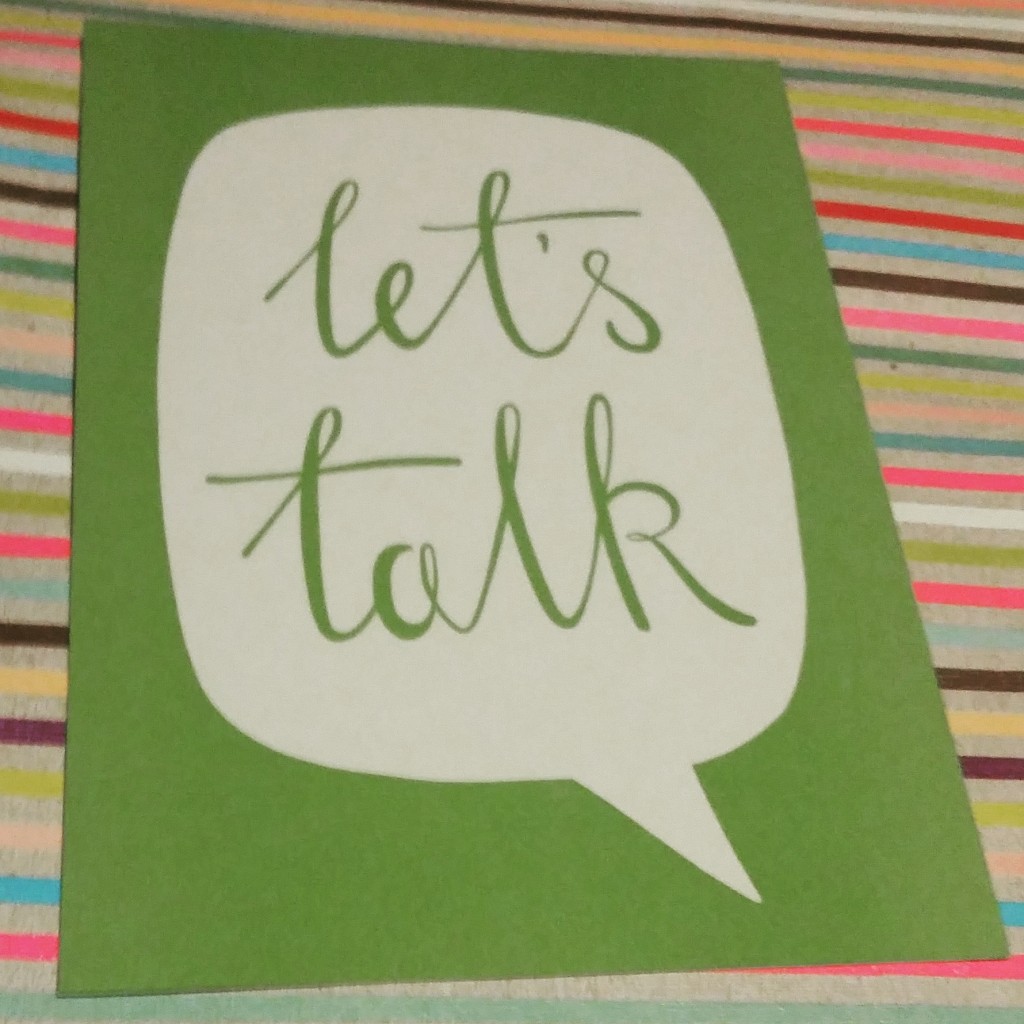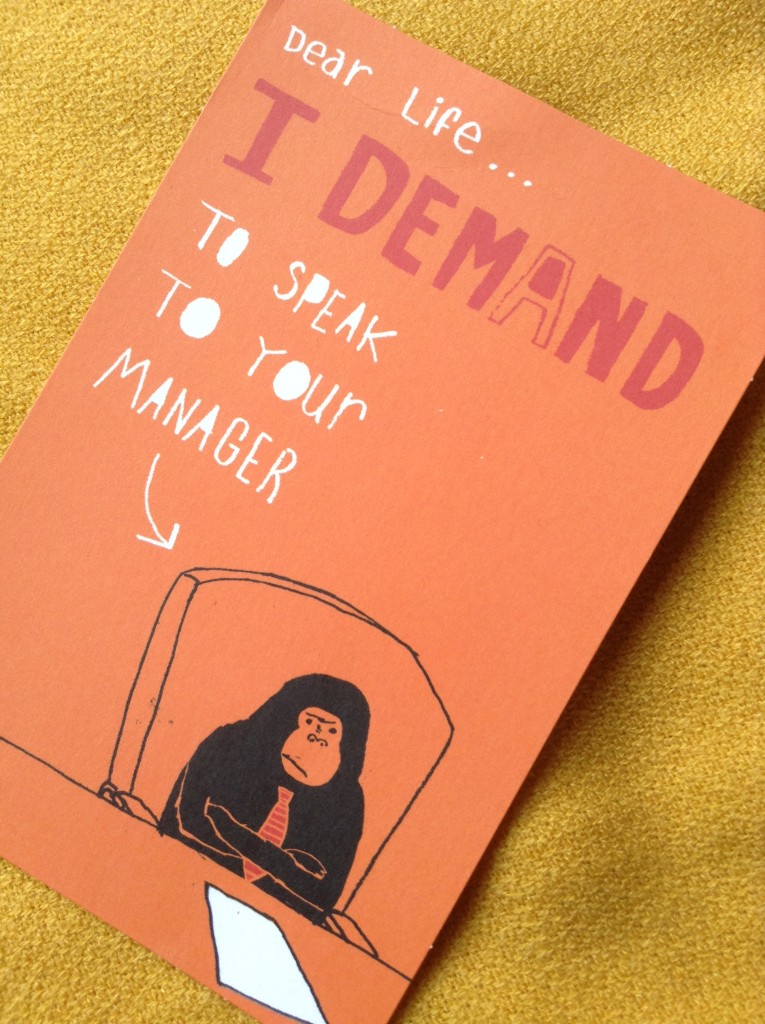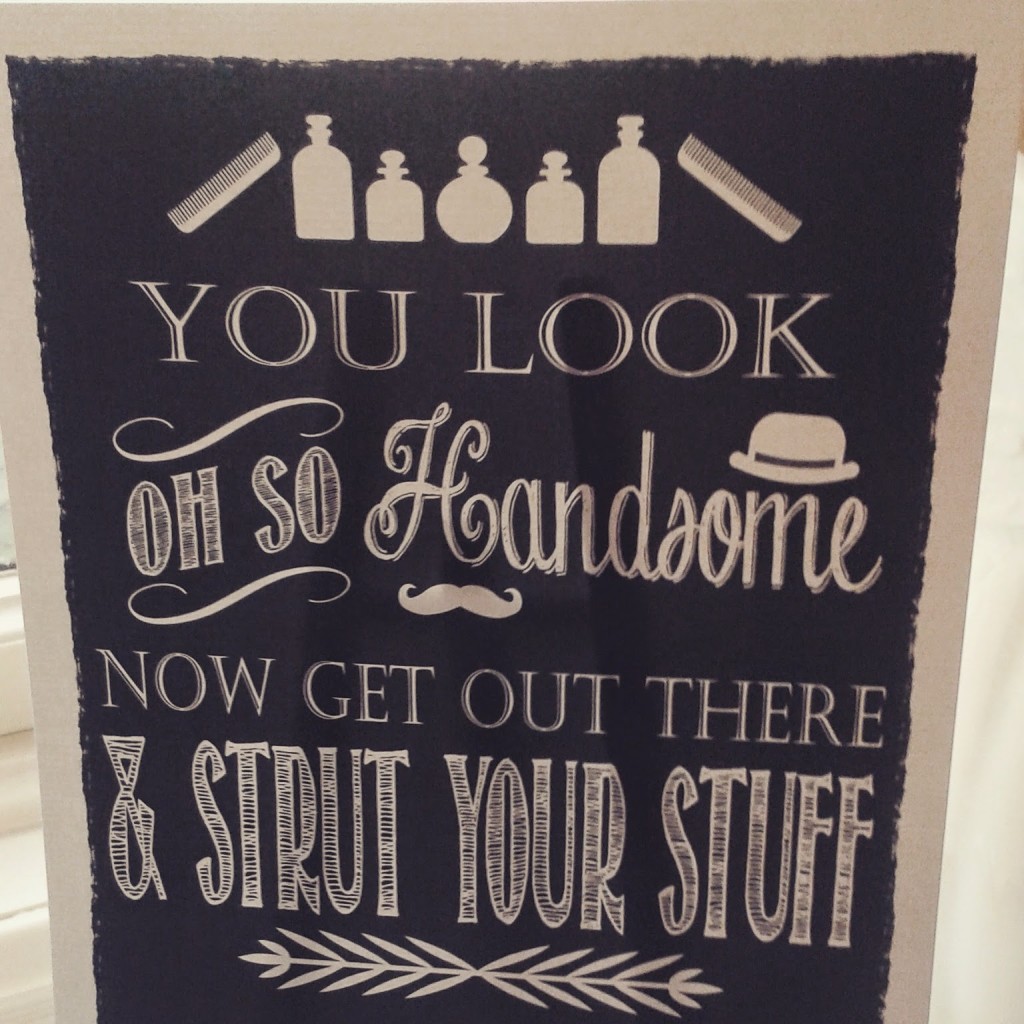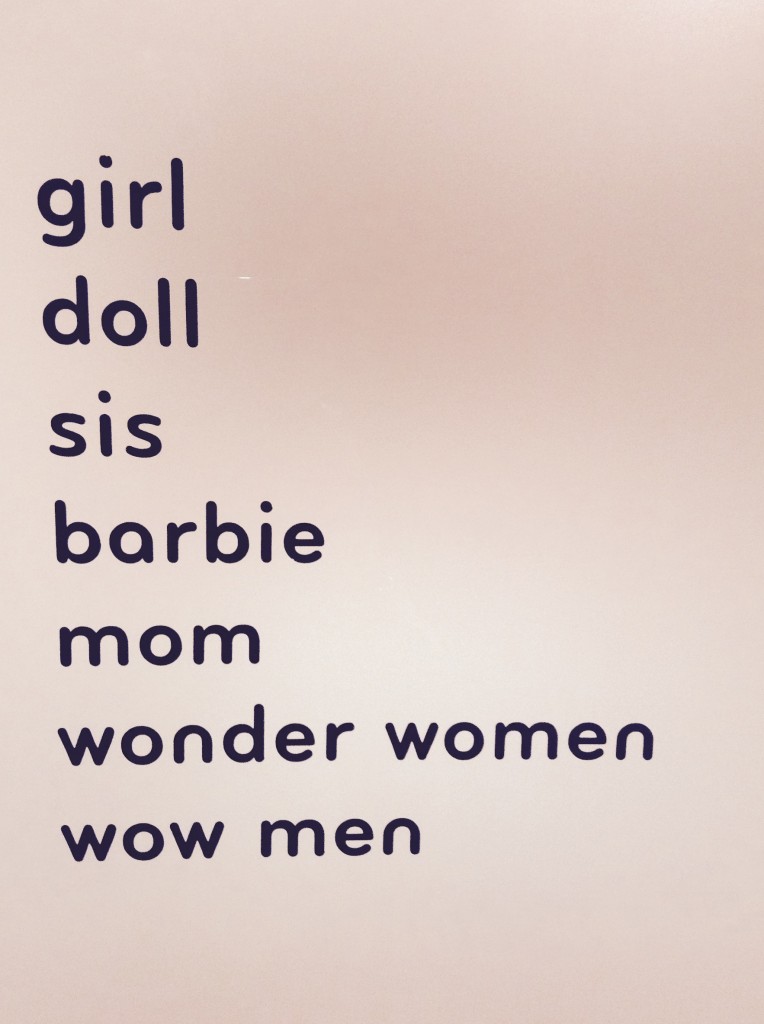Goal for 2016: Be authentic
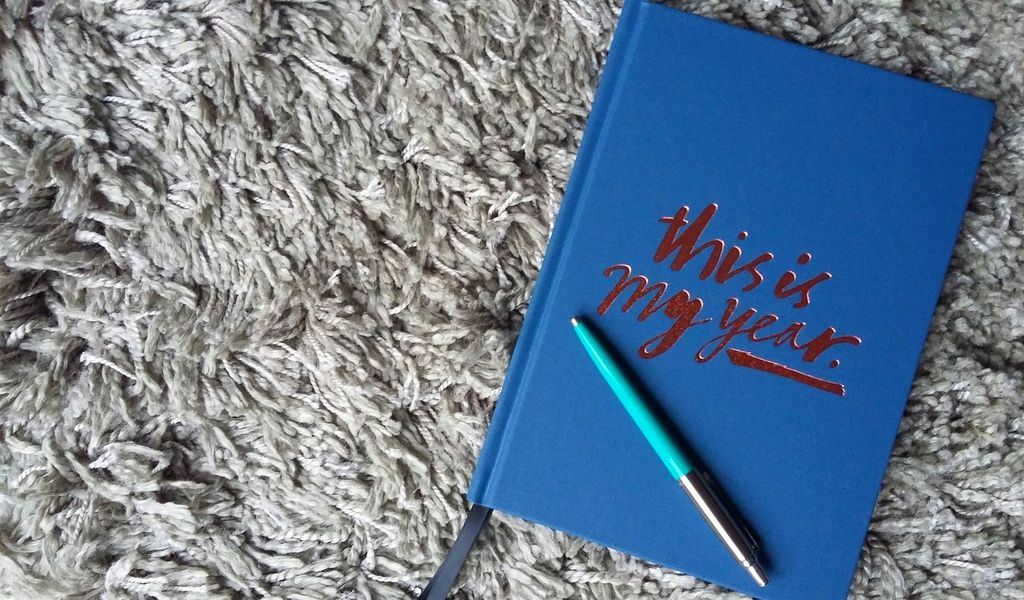 Happy New Year to you all!
Happy New Year to you all!
The taste for Hendrick’s Gin that I developed in 2015 ensured that 1 January started very slowly, but it was nothing a large sandwich couldn’t resolve, thank goodness.
I’ve been looking forward to 2016. When we were in Australia I bought a beautiful diary and I couldn’t wait to get going with it. There’s nothing like a new piece of stationery to make us think that everything is going to be ok, is there? The feeling will last right up until I write ‘launch’ instead of ‘lunch’ in it and am forced to decide whether to scribble the mistake out, remove the entire page, or throw the whole diary in the bin and start again. (Beware stationery enthusiasts: we are always on the brink of a paper-based meltdown).
And with a new diary also comes thoughts about plans, goals, and New Year’s resolutions. As I get older, I know that it is always a good time to come up with new ways to better yourself – it doesn’t need to be January. But what I do find helpful about the end of one year and the start of the next, is the opportunity to think about what you want to be in the 12 months ahead.
Last year, I wanted to be brave. And sometimes I was. And when I felt my bravest – and indeed when things went best – was when I allowed myself to be myself. So for 2016, my aim is to be authentic in all areas of my life.
Be authentic in your work
If you’re not presenting a real version of yourself, people will be able to tell. And, more importantly, it’ll feel rubbish.
A couple of weeks ago I spent an hour working on a pitch for an article that, in the end, I decided not to send. And the reason was because the publication and I just aren’t compatible. If it saw me on Tinder, it would swipe left. I’d feel bad about it for a while but then, when I’d slept on it, I’d think – no, you were right to do that. You’ve saved us both a lot of trouble.
I was constantly editing the pitch to make myself sound like somebody else, and what’s the point of that? They’d most definitely have seen through it, and I wouldn’t have liked writing it anyway. I won’t go into the specifics but just imagine I’d pitched an article on the benefits of walking around my house with shoes on whilst eating a particularly crumbly biscuit. You see? Not me at all.
Remember, friends, it’s your own time you’re wasting. I’m not saying don’t test yourself or step out of your comfort zone – definitely do that – but do it for things you actually want and will enjoy. Because there will be lots of those.
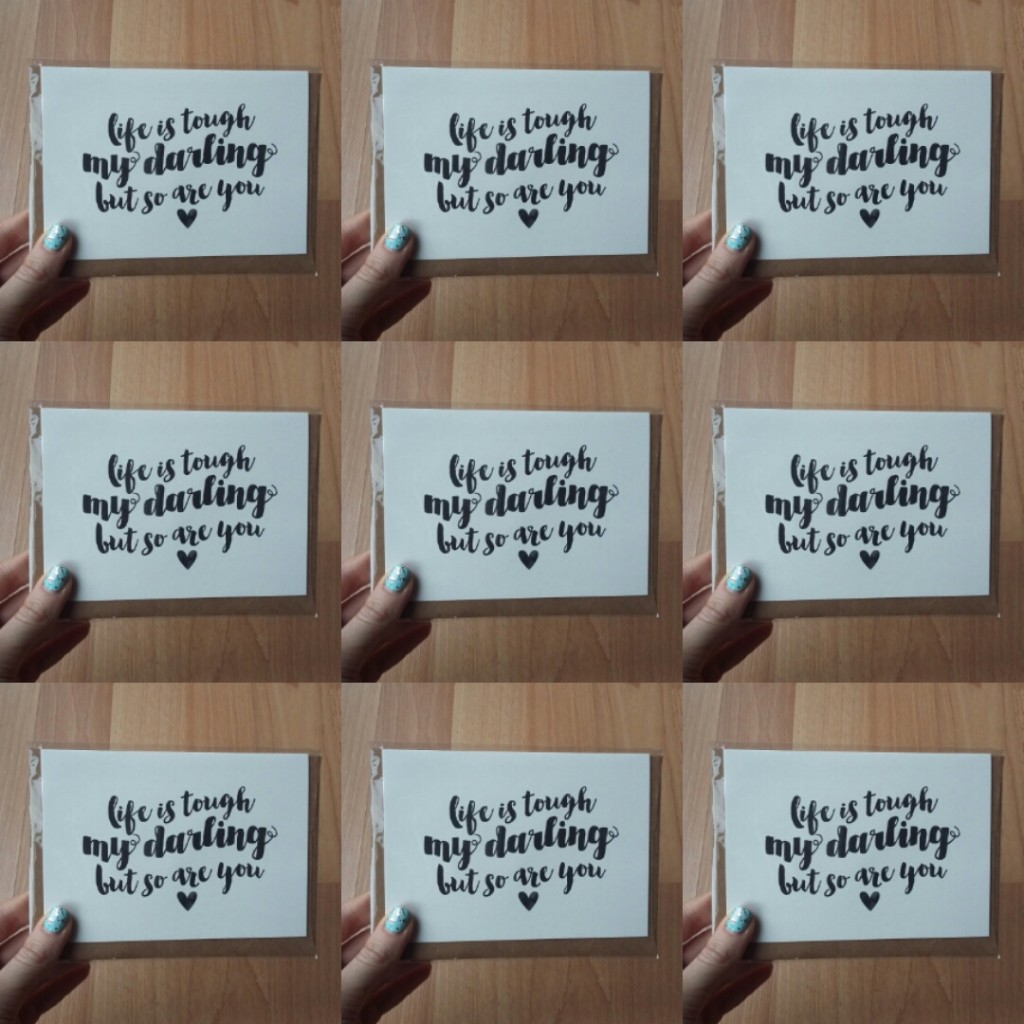 Be authentic in your personal life
Be authentic in your personal life
It’s OK to let people know you, to tell your friends what’s really going on – that you’re feeling good, that you’re feeling down, that you’re feeling bloated because you just discovered a new kind of blue cheese (damn you, Cambozola). Whatever it might be – and when you feel able – chat it out. The last couple of years has taught me that people are really rather nice all in all and that as soon as you have the courage to talk about a problem, it’s amazing how quickly you discover that other people struggle too. Hell, everybody does.
I like to return from a catch up with friends feeling exhausted because we’ve laughed and cried it all out. It’s sort of like therapy, just more expensive because we did it whilst consuming cocktails/sushi/all of the cake.
It doesn’t have to be like this, of course, some people just need to be allowed to sit quietly and not say anything at all. And that is just as important. The point is you that you don’t need to pretend. Like I said in my last post, we’re in our thirties now (or some of us are…), if people have you in their life, it’s because they really want you there. So give them the real you – cheese-fuelled stomach aches and all.
Be authentic in your look
Just before Christmas I sat in front of a mirror in a make-up shop while a very nice lady put lipstick on me.
This process would previously have left me in a hot panicky sweat. How could I believe that lipstick would look nice on me? What must all the other people in the shop be thinking? Why is everybody laughing at me? STOP LAUGHING AT ME.
But this time I didn’t feel like that, which was nice. Partly because she’d chosen me a colour that made me look an adult woman rather than a clown, which is an achievement in itself. But also because of my age. I’m 30 now and after three decades living with this face it’s about time I started liking it. I’m also rather enjoying having brown hair. After 16 years of dyeing it blond, it’s quite nice to be getting closer to my natural colour. Perhaps it’s because I’ve removed a level of pretence from my life, or perhaps it’s just that I’m too tight to keep forking out for bleach. I’ll let you decide.
For some people, dyeing their hair blue, pink or purple brings about a feeling of authenticity. Whatever works for you, I say do it. You should look how you want to look. After 30 years of listening out for it, I can confirm that nobody worth listening to is laughing.
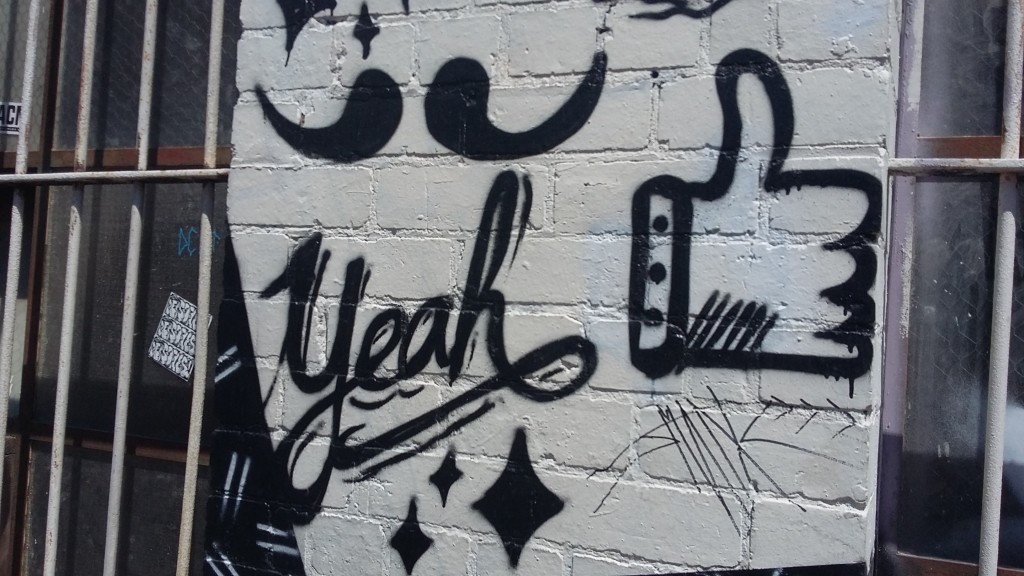 Be authentic online
Be authentic online
Some of us exist as much in people’s lives online as we do in real life. You may well be reading this despite the fact that we’ve never met. How nice are you?! It’s important to be a real version of yourself on the internet as much as anywhere else. If for no other reason than because you’ll probably enjoy it more.
If you’re not careful, you can spend a lot of time online thinking that you need to make yourself more like other people. Twitter and the like are filled with successful people, chatting – as they should – about all the great things they’ve been doing. And it can be a struggle to just look at them without feeling that maybe you should take up their tone or their choice of words or their excessive use of the exclamation mark because surely that will help you make your fortune too. I doubt it. You’ve got to do it your own way. Sure, take a bit of inspiration from the millions of great people who live in your computer, but don’t feel you have to try to be all of them. I mean, I’m not even sure how that would work but it sounds exhausting.
So that’s my aim for the year ahead. What’s yours?
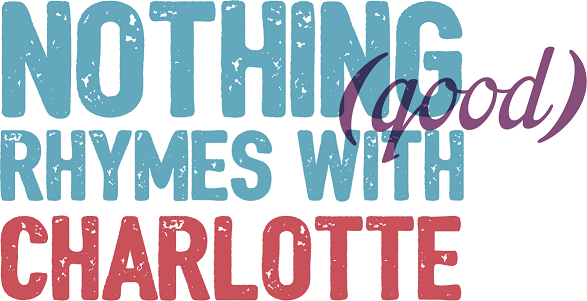

 Friends, I’ve gone part-time.
Friends, I’ve gone part-time.
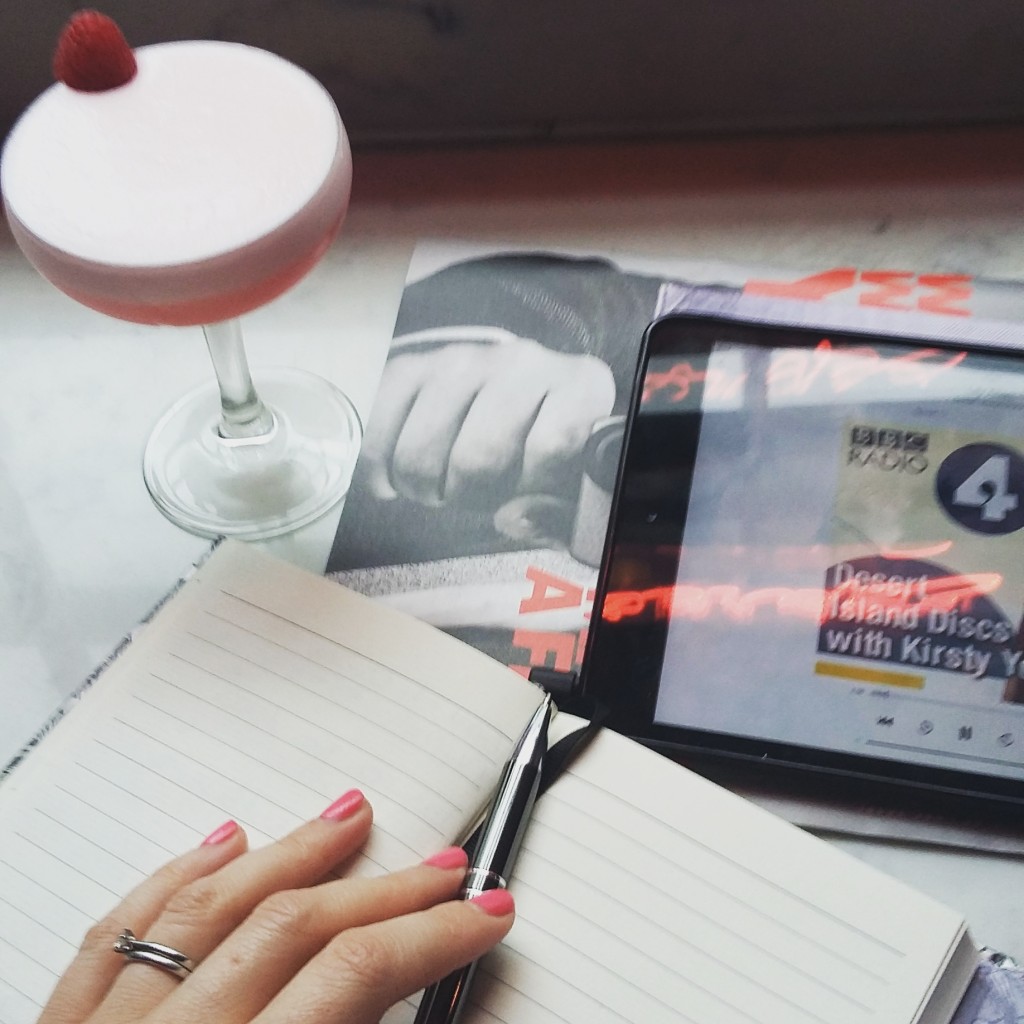 Because, guess what? Nobody cares (alright possibly re: the staring but just try to keep it more generally-having-a-look-around than super-creepy-weirdo) And if they do, do you? I’ve gradually managed to train myself not to.
Because, guess what? Nobody cares (alright possibly re: the staring but just try to keep it more generally-having-a-look-around than super-creepy-weirdo) And if they do, do you? I’ve gradually managed to train myself not to.

